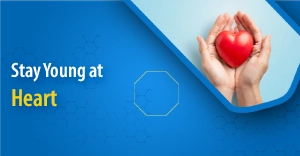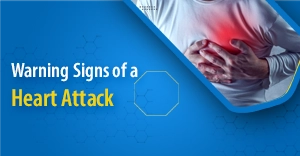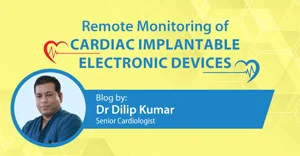What is Arrhythmia?
An arrhythmia is a disorder of the heart that affects the rate or rhythm at which the heart beats. An arrhythmia occurs when electrical impulses, which direct and regulate heartbeats, don’t function properly. This causes the heart to beat:
- Too fast (tachycardia)
- Too slow (bradycardia)
- Too early (premature contraction)
- Too erratically (fibrillation)
Almost all individuals will experience an abnormal heart rhythm at least once. It may feel like your heart is fluttering or racing. Arrhythmias are common and usually harmless, but some may be problematic. When an arrhythmia interferes with blood flow to your body, it can damage the brain, lungs, and other organs. If not treated, these arrhythmias can also be life-threatening.
Our cardiologists, cardiac surgeons and interventional cardiologists are trained to treat congenital and other types of heart ailments that come with age. Our doctors are also experienced in treating ‘heart-rhythm’ disorders such as arrhythmia.
Free Doctor Assessment
How does the Human Heart Work?
Our heart is divided into four chambers. Each half of the heart comprises the atrium which is the upper chamber and the ventricle which is the lower chamber. These halves create two pumps, one on either side of the heart.
In a properly beating heart, electrical impulses travel through the precise pathways through the heart to the pumps. These signals coordinate the heart activities so that blood pumps effectively. Any interruption in these pathways can make the heart beat abnormally.
How does the Heart Beat?
Blood enters the heart and first arrives in the atria. Then, a single heartbeat involves the following steps:
- The sinus node sends an electrical impulse to the right and left atria, prompting them to contract
- The contraction permits the ventricles to fill with blood
- As the ventricles fill, the electrical impulse travels to the centre of the heart to the atrioventricular node (a group of cells present between the atria and ventricles)
- The impulse exits the node and reaches the blood-filled ventricles, asking them to contract
- The contraction pushes the blood out of the heart and into the body for circulation
That is one heartbeat. Then the process starts all over again. A normal heart repeats the process about 100,000 times each day. That’s 60 to 100 beats per minute for an average healthy person at rest.
Causes of Arrhythmia
Arrhythmia can occur if the electrical impulses that stimulate heart contractions are disrupted. Several factors can cause the heart to work incorrectly, including:
- Alcohol abuse
- Diabetes
- Drinking too much coffee
- Substance use disorder
- Smoking
- Heart disease, such as congestive heart failure
- High blood pressure
- Hyperthyroidism, or an overactive thyroid gland
- Stress
- Scarring of the heart, often due to a heart attack
- Structural changes in the heart
- Certain types of dietary and herbal supplements
A healthy heart will almost never experience long-term arrhythmia unless there is an external trigger, such as a substance use disorder or an electric shock. An underlying heart problem, on the other hand, can mean that electrical impulses do not travel properly through the heart. This increases the likelihood of arrhythmia.
What are the Types of Arrhythmias?
Arrhythmias are categorized based on the following:
- Rate (whether it is too slow or too fast)
- Origin (whether it is in the atria or the ventricles)
- Regularity
- Bradycardia
Bradycardia is referred to as a slow heartbeat, defined as a resting heart rate fewer than 60 beats per minute. Not all bradycardias are problematic. Athletes and individuals who are physically fit tend to have bradycardias. Their resting heart rates may be fewer than 60 beats per minute as their hearts are more efficient and can pump adequate blood with fewer beats. However, a slow heart rate may mean that your heart doesn’t beat frequently enough to ensure adequate blood flow throughout your body.
Types of Bradycardias:
Sick sinus: The sinus node is responsible for setting the pace of your heart. If it does not send electrical impulses timely and properly, your heart may pump irregularly. Scarring near the sinus node due to heart disease or heart attack may lock or slow down electrical impulses as they try traveling through the heart.
Conduction block: If your heart’s electrical pathways are blocked, the chambers of the heart may contract slowly or not at all. A block can be present anywhere along the heart’s electrical pathways — between the AV node and ventricles or between the sinus node and atrioventricular (AV) node. There may be no signs of these blocks other than just slowed or skipped beats.
Tachycardia: Tachycardia refers to a fast heartbeat, defined as a resting heart rate of over 100 beats per minute. The two most common types of tachycardia are as follows:
- supraventricular tachycardia
- ventricular tachycardia
Supraventricular tachycardia: Supraventricular tachycardia (SVT) is an arrhythmia that starts above the ventricle. SVTs are generally identified by a burst of rapid heartbeats that may either be chronic or begin and end all of a sudden. These bursts can last from a few seconds to several hours and can cause your heart to beat more than 160 times per minute. The most common SVTs include atrial flutter and atrial fibrillation.
Atrial fibrillation (AF): If you have AF, the atrium beats rapidly (as fast as 240 to 350 beats per minute). The atria move so rapidly that they fail to contract completely and instead, they fibrillate or quiver. This often causes discomfort but not rapid pulses. Some of these atrial beats, however, can transfer to the ventricles, resulting in a high pulse rate.
AF primarily affects older people. The risk of developing this kind of arrhythmia increases after the age of 60, mostly due to the wear of an older heart. The chances of developing AF are also high if you have high blood pressure or other heart problems.
Atrial flutter: If you suffer from atrial flutter, the heartbeats are relatively more rhythmic and constant than those in atrial fibrillation. Still, atrial flutter can come and go in sudden bursts and can be life-threatening. This type of arrhythmia occurs in people suffering from heart diseases. It often also shows up within the first weeks after heart surgery.
Ventricular tachycardia (VT): VT is an arrhythmia that begins in the ventricles of the heart. Most VT occurs in people who have had heart disease or heart-related problems, such as coronary artery diseases or heart attacks. VT is often caused by an electrical impulse traveling around a scarred part of the heart’s muscle. It may cause the ventricles to contract over 200 times per minute.
Ventricular fibrillation (VF): Signs of VF include sudden, irregular, rapid, heartbeats in the ventricle. These erratic electrical impulses may be triggered by a heart attack, causing the ventricles to quiver. If you have this type of arrhythmia, your ventricles cannot pump blood into your body and the heart rate drops quickly. The blood pressure also falls and diminishes the blood supply to your body and organs. VF is among the leading causes of a sudden cardiac arrest.

Minimally Invasive
Surgery

World Renowned
Experts
EMI Facility
Available

Covid Safe
Environment
Treatment
Arrhythmias in today’s day and time can be cured through the proper treatment. Medications, medical procedures like Cardioversion or Radiofrequency ablation or cardiac devices like the pacemaker and implantable cardioverter defibrillators can help the patient overcome the complications of living with arrhythmia.
In the recent years, Medica’s cardio team has distinguished themselves as one of Kolkata’s most trusted centers for cardiac treatment and procedures. Our doctors has successfully supported multiple patients with complex heart conditions throughout their treatment and complete recovery, completely unshaken by the current Covid-19 calamity.









